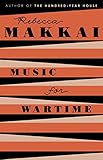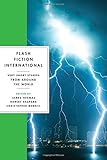 To me, Go Set a Watchman is a worthwhile work, although I wish Ms. Lee had been more precise about the historical context and had made Jean Louise a little less naive. Stylistically, the novel is dated, but that makes it authentic to the place and time in which it is set. Given the shocking instances of racial violence in the United States this past year, it would seem that Go Set a Watchman is relevant to our times.
To me, Go Set a Watchman is a worthwhile work, although I wish Ms. Lee had been more precise about the historical context and had made Jean Louise a little less naive. Stylistically, the novel is dated, but that makes it authentic to the place and time in which it is set. Given the shocking instances of racial violence in the United States this past year, it would seem that Go Set a Watchman is relevant to our times.
Category: Literary Fiction Reviews
Ali Cobby Eckermann on her book Inside my Mother
Ali Cobby Eckermann joins us to read from and talk about her latest poetry collection Inside my Mother, as well as the “My Mother’s Heart” sesion at the Sydney Writers Festival, the many meanings of “mother”, both personal, universal, and metaphoric,…
A review of The Eye of the Sheep by Sofie Laguna
 It’s not just the characters that descend to their lowest level in this book. It’s also the medical profession, governmental welfare programs, and Mobil Oil where Gavin works scraping rust off pipes. However, Laguna never lets the characters – not even the most peripheral – slip into stereotypes. The Eye of the Sheep is a tender and delicate novel, rich with sympathy and understanding, even when it becomes almost unbearably dark.
It’s not just the characters that descend to their lowest level in this book. It’s also the medical profession, governmental welfare programs, and Mobil Oil where Gavin works scraping rust off pipes. However, Laguna never lets the characters – not even the most peripheral – slip into stereotypes. The Eye of the Sheep is a tender and delicate novel, rich with sympathy and understanding, even when it becomes almost unbearably dark.
Lucy Dougan on The Guardians
The author of The Guardans reads a number of poems from her book and talks about how it has has come together, about the key themes in the book: masks, the roles and genetics we inherit, about poetry as archeology, on…
A review of The Remains of the Day by Kazuo Ishiguro
 This is a lovely, easy to read, and powerful book. The simplicity of its narrative belies a far deeper and more complex underlying truth, and this new Faber & Faber edition draws attention to how fresh and relevant the book remains to a modern audience.
This is a lovely, easy to read, and powerful book. The simplicity of its narrative belies a far deeper and more complex underlying truth, and this new Faber & Faber edition draws attention to how fresh and relevant the book remains to a modern audience.
A review of Miss Emily by Nuala O’Connor
 O’Connor portrays Emily sensitively and sympathetically. Writers will identify with her need for peace and solitude, co-existing with a yearning for understanding and closeness. Emily’s girlhood friend, Susan Gilbert, who married her brother, Austen, was her closest friend.
O’Connor portrays Emily sensitively and sympathetically. Writers will identify with her need for peace and solitude, co-existing with a yearning for understanding and closeness. Emily’s girlhood friend, Susan Gilbert, who married her brother, Austen, was her closest friend.
A review of Music for Wartime by Rebecca Makkai
 The theme of Makkai’s collection seems to be the surprising, unusual, surrealistic, and supernatural. It is probably no accident that she starts the collection with a fable, since fables are by definition about the unusual and supernatural. The pogrom/war/ethnic cleansing stories involve startling occurrences, and so do the stories set in contemporary America.
The theme of Makkai’s collection seems to be the surprising, unusual, surrealistic, and supernatural. It is probably no accident that she starts the collection with a fable, since fables are by definition about the unusual and supernatural. The pogrom/war/ethnic cleansing stories involve startling occurrences, and so do the stories set in contemporary America.
Beth Spencer on Vagabondage
Award winning novelist, poet and nonfiction writer Beth Spencer reads from and talks about her latest poetry book,Vagabondage. In this candid conversation we discuss her own journey, the idea of “leaving no trace”, about aging, displacement, homelessness, her writing processes,…
A review of Flash Fiction International edited by James Thomas, Robert Shapard and Christopher Merrill
 “Night Drive” by Rubem Fonseca of Brazil is a Stephen Kingish story that shows the Mr. Hyde side of a seemingly benign Dr. Jekyll. Another story that I admire, “The Snake” by Eric Rugara of Kenya, is, on the surface, a picture of family cooperation to band together promptly to rid their home of a snake. It may also be a metaphor for the power of united action against any creeping threat. With eighty-six stories to choose from it is easy for a reader to find something s/he likes in this collection.
“Night Drive” by Rubem Fonseca of Brazil is a Stephen Kingish story that shows the Mr. Hyde side of a seemingly benign Dr. Jekyll. Another story that I admire, “The Snake” by Eric Rugara of Kenya, is, on the surface, a picture of family cooperation to band together promptly to rid their home of a snake. It may also be a metaphor for the power of united action against any creeping threat. With eighty-six stories to choose from it is easy for a reader to find something s/he likes in this collection.
Graham Stull on The Hydra
The author of The Hydra reads from and talks about his new novel and where his ideas for it came from, about his biologist turned Frankenstein protagonist Brian Matterosi, on viral engineering, genre fiction, indie publishing, distopias, population and ecology,…